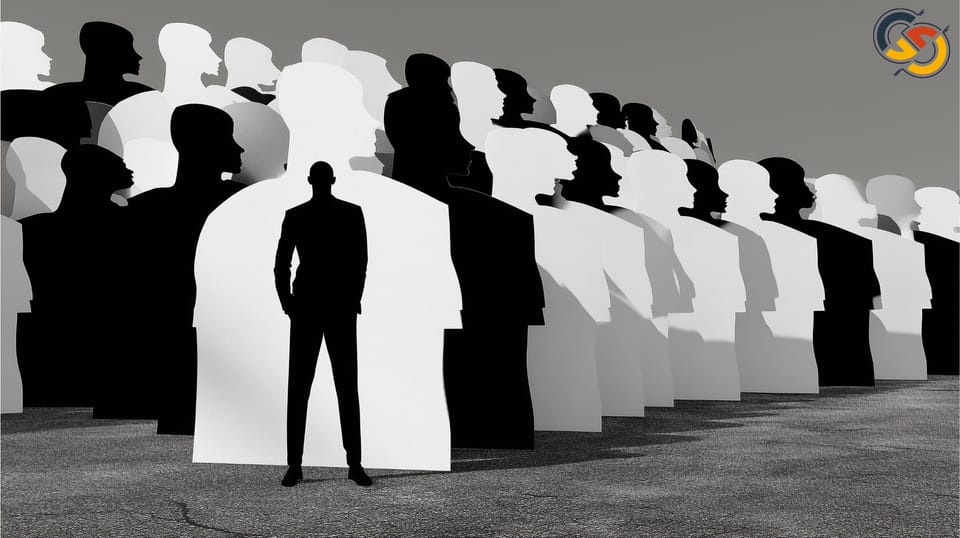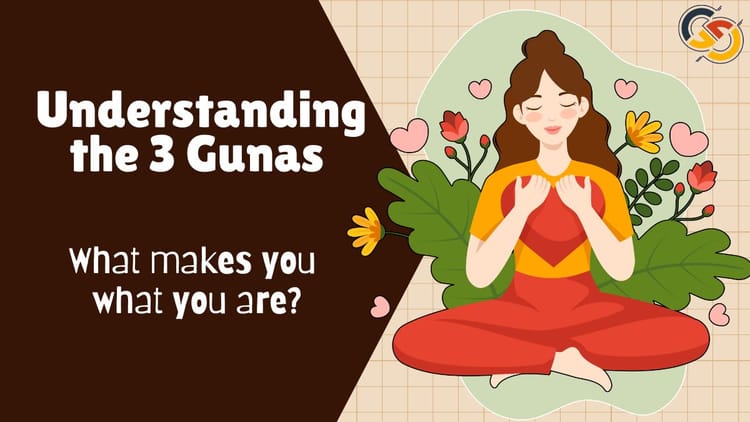Confirmation Bias: Understanding How Our Minds Filter Information

Introduction: What Is Confirmation Bias and Why Does It Matter?
Have you ever noticed how easy it is to find information supporting your beliefs? Or how quickly you might dismiss evidence that contradicts your existing views? This common psychological phenomenon is called confirmation bias—perhaps the most pervasive and influential cognitive bias affecting human decision-making today.
Confirmation bias refers to our natural tendency to favor information that confirms our preexisting beliefs while giving less attention or weight to contradictory evidence. It functions as an internal filter, subtly yet persistently guiding us toward information that feels comfortable and familiar, while screening out data that challenges our established worldview.
In today's information-rich environment, where social media algorithms, personalized news feeds, and targeted advertising increasingly cater to our preferences, understanding confirmation bias has never been more crucial. This cognitive tendency affects everything from personal relationships and political views to consumer choices and professional decisions.
This article explores the psychology behind confirmation bias, its real-world implications, how marketers leverage it, and most importantly, how we can recognize and overcome its influence in our lives.
The Science Behind Confirmation Bias: Origins and Mechanisms
Historical Background and Discovery
The formal identification of confirmation bias emerged from groundbreaking research by English psychologist Peter Wason in 1960. Through his now-famous "rule discovery task" experiments, Wason demonstrated how participants overwhelmingly gravitated toward testing cases that would confirm their hypotheses rather than seeking evidence that might disprove them.
Participants in Wason's studies showed a remarkable resistance to testing their assumptions, instead focusing on examples that supported their preconceived notions. This discovery laid the foundation for understanding one of the most fundamental aspects of human reasoning—our inherent preference for confirmation over falsification.
How Confirmation Bias Works in Our Brains
From an evolutionary perspective, confirmation bias may have developed as a cognitive shortcut to help our ancestors make quick decisions in dangerous environments. Rather than constantly reevaluating every situation from scratch, our brains developed efficient patterns of thinking that favor previously established beliefs.
Modern neuroscience has revealed that confirmation bias operates through several mechanisms:
- Selective attention: We unconsciously pay more attention to information that aligns with our existing beliefs
- Biased interpretation: We interpret ambiguous information in ways that support our preconceptions
- Selective memory: We more easily recall information that confirms what we already believe
- Motivated reasoning: We scrutinize contradictory information more critically than supportive information
Popularized by psychologists Daniel Kahneman and Amos Tversky, the two-system theory of cognition provides further insight. Our quick, intuitive "System 1" thinking often defaults to existing beliefs. In contrast, our more deliberate, analytical "System 2" thinking, which might help us overcome biases, requires conscious effort that we don't always employ.
The Dual Nature of Confirmation Bias: Benefits and Drawbacks
Potential Benefits
Despite its reputation as a cognitive flaw, confirmation bias isn't entirely without merit. In specific contexts, it offers several advantages:
- Cognitive efficiency: By filtering information according to existing beliefs, our brains can process vast amounts of data more quickly
- Psychological comfort: Reinforcing existing beliefs provides a sense of stability and predictability in an uncertain world
- Decision-making in familiar environments: When based on accurate prior knowledge, confirmation bias can lead to faster, appropriate decisions
- Identity maintenance: Supporting our existing worldview helps maintain our sense of self and group identity
Significant Drawbacks
However, the costs of unchecked confirmation bias typically outweigh these benefits:
- Resistance to correction: Even when presented with compelling evidence, confirmation bias makes changing mistaken beliefs difficult
- Polarization: In groups, confirmation bias can lead to increasingly extreme positions as members reinforce each other's views
- Overconfidence: By filtering out contradictory evidence, confirmation bias can create an illusion of greater certainty than is warranted
- Poor decision-making: Important choices made under the influence of confirmation bias may ignore crucial contradictory information
- Echo chambers: In our digital lives, confirmation bias combined with algorithmic content selection can create environments where we only encounter like-minded perspectives
Types of Confirmation Bias in Everyday Life
Confirmation bias manifests in several distinct forms that affect different aspects of our information processing:
1. Biased Information Search
This occurs when we actively seek information supporting our beliefs while avoiding sources that might challenge them. For example, a person who believes a specific diet is optimal might read numerous books supporting that approach while ignoring scientific studies questioning its effectiveness.
2. Biased Interpretation
Even when confronted with the same objective information, people with different prior beliefs will interpret it differently. Political partisans viewing the same economic data or debate performance will often walk away with entirely different impressions, each believing the evidence supports their side.
3. Biased Memory
Our memories aren't perfect recordings but reconstructions influenced by our beliefs. Studies show people are more likely to remember information that confirms their views accurately and either forget or misremember contradictory information.
4. Belief Persistence
Once formed, beliefs persist even when the evidence that initially supported them is thoroughly discredited. This "belief perseverance" demonstrates how confirmation bias continues to influence us even after removing the original "confirming" evidence.
Confirmation Bias in Different Domains
In Politics and Social Issues
Perhaps nowhere is confirmation bias more evident than in political discourse. Research consistently shows that people across the political spectrum:
- Rate arguments aligned with their views as stronger and more persuasive
- Question the credibility of sources presenting contrary information
- Interpret ambiguous information in ways that support their political leanings
- Remember facts that support their position more accurately than those that don't
This selective processing contributes significantly to political polarization, with partisans on different sides increasingly inhabiting separate information ecosystems that reinforce their existing views.
In Consumer Behavior
Consumer preferences are heavily influenced by confirmation bias. Once we develop brand loyalty, we tend to:
- Notice and remember positive experiences with preferred brands
- Discount or rationalize negative experiences
- Interpret ambiguous product information favorably for preferred brands
- Seek reviews and testimonials that support our existing product preferences
Consider how Apple enthusiasts might find evidence confirming their belief that Apple products are superior, while Android fans find equally compelling evidence supporting their preference. Both groups filter the same marketplace information through their preexisting brand beliefs.
In Financial Decision-Making
Investors frequently fall prey to confirmation bias by:
- Focusing on information that suggests their investments will perform well
- Attributing investment successes to skill and failures to bad luck
- Seeking analyst opinions that align with their existing investment theses
- Downplaying market signals that contradict their financial strategies
This tendency can lead to poor portfolio diversification, holding losing investments too long, and other costly financial mistakes.
How Marketers Leverage Confirmation Bias
Savvy marketers understand and exploit confirmation bias to influence consumer behavior in several ways:
Brand Positioning and Messaging
Marketers craft messages that align with their target audience's existing beliefs. Apple's iconic "I'm a Mac, I'm a PC" campaign successfully appealed to the preconceptions of Apple's target demographic, reinforcing the belief that Macs are more creative, user-friendly, and stylish than PCs. This approach strengthened customer loyalty while appealing to prospects who already harbor similar perceptions.
Social Proof and Testimonials
By highlighting testimonials from customers who match the demographic profile of their target audience, brands provide confirming evidence that "people like you" enjoy their products. This tactic leverages our tendency to seek confirmation that our choices align with our social identity.
Price-Quality Associations
Luxury brands exploit the common belief that higher prices indicate superior quality. When consumers who hold this belief encounter premium pricing, confirmation bias leads them to perceive the product as higher quality—even when objective differences may be minimal.
Selective Information Presentation
Product descriptions and marketing materials strategically emphasize features and benefits, confirming target customers' preferences while downplaying potential drawbacks. This selective presentation makes products appear more aligned with consumer preferences than they might be.
Confirmation Bias and Related Cognitive Biases
Confirmation bias doesn't operate in isolation but interconnects with several other cognitive biases:
Anchoring Bias
Once we form an initial impression (the "anchor"), we tend to interpret subsequent information about that first impression. This works hand-in-hand with confirmation bias, as the anchor shapes what information we seek and how we interpret it.
Availability Heuristic
We judge the likelihood of events based on how easily examples come to mind. Confirmation bias influences which examples are most mentally available to us, creating a feedback loop that can reinforce mistaken probability judgments.
Dunning-Kruger Effect
This bias makes people overestimate their knowledge or ability in areas lacking expertise. Confirmation bias contributes by helping people find "evidence" that confirms their inflated self-assessment while ignoring contradictory indicators.
Fundamental Attribution Error
We tend to attribute others' behaviors to their personality while explaining our behavior through situational factors. Confirmation bias helps maintain this double standard by selectively filtering information about ourselves and others in ways that support these different attribution patterns.
Halo Effect
When we have a positive impression of someone in one area, it influences our perception of their other qualities. Confirmation bias maintains the halo effect by directing our attention toward information confirming our initial positive impression.
Bandwagon Effect
Our tendency to adopt beliefs or behaviors because many others do so interacts with confirmation bias. Once we join the "bandwagon," confirmation bias helps us find evidence confirming our correct choice.
Sunk Cost Fallacy
After investing time, money, or effort into something, we're reluctant to abandon it even when continuing doesn't make rational sense. Confirmation bias helps justify continued investment by highlighting information that confirms the original decision was sound.
Strategies to Overcome Confirmation Bias
While eliminating confirmation bias is impossible—it's hardwired into our cognitive processes—we can take steps to mitigate its influence:
1. Cultivate Awareness
The first step in overcoming any cognitive bias is recognizing its existence. By developing metacognition—awareness of your thought processes—you can catch yourself in moments when confirmation bias might be influencing your judgment.
Practice asking: "Am I considering this information fairly, or am I favoring evidence that supports what I already believe?"
2. Seek Diverse Information Sources
Deliberately expose yourself to viewpoints that differ from your own. If you lean liberal, read conservative news sources occasionally; if you're a devoted fan of a particular approach, read critiques.
Creating a habit of information diversity can help counterbalance the natural tendency to seek confirming evidence.
3. Practice the "Steel Man" Approach
Instead of looking for weaknesses in opposing arguments (the "straw man" approach), challenge yourself to build the strongest possible case for positions you disagree with (the "steel man" approach). This practice forces you to engage seriously with contradictory evidence.
4. Engage with People Who Think Differently
Respectful discussion with those who hold different perspectives can highlight blind spots in your thinking. While potentially uncomfortable, these conversations expose evidence and interpretations you might otherwise miss.
5. Implement Decision-Making Safeguards
For important decisions, establish processes that counteract confirmation bias:
- Designate someone to play devil's advocate
- List reasons why your initial judgment might be wrong
- Seek feedback from people with different perspectives
- Consider what advice you would give someone else in your situation
6. Practice Intellectual Humility
Cultivate comfort with uncertainty and a willingness to change your mind when evidence warrants. Recognizing the limitations of your knowledge makes you more open to information that doesn't confirm your beliefs.
The Digital Age: Confirmation Bias in the Era of Algorithms
Today's digital environment presents unique challenges for managing confirmation bias:
Echo Chambers and Filter Bubbles
Social media algorithms and personalized search results often show us content similar to what we've previously engaged with. These technological filters compound our natural confirmation bias, creating stronger echo chambers than were possible in pre-digital times.
Misinformation and "Fake News"
The internet offers unprecedented access to information, both reliable and unreliable. Confirmation bias leads us to accept dubious information that confirms our beliefs while rejecting reliable sources that challenge them, making us vulnerable to misinformation.
Countering Digital Confirmation Bias
To combat these digital amplifiers of confirmation bias:
- Adjust social media settings to see diverse content
- Use private browsing or different search engines for important research
- Follow credible sources representing different perspectives
- Use fact-checking websites to verify claims that strongly confirm or disconfirm your views
Confirmation Bias in Professional Settings
In the Workplace
Confirmation bias affects workplace dynamics in numerous ways:
- Managers may notice employee behaviors that confirm their initial impressions
- Teams may dismiss valid concerns from members with minority viewpoints
- Project planning may overlook potential problems that contradict optimistic projections
- Performance reviews may overemphasize incidents that match existing perceptions
In Scientific Research
Even in science, where objectivity is prized, confirmation bias can emerge:
- Researchers may design studies in ways that make their hypotheses more likely to be confirmed
- Publication bias favors studies with positive results over those with negative findings
- Scientists may interpret ambiguous results in ways that support their theories
- Research communities may resist paradigm shifts that challenge established views
In Healthcare Decisions
Medical professionals and patients both face confirmation bias challenges:
- Doctors may favor diagnoses that match their initial impressions
- Patients may dismiss treatment options that contradict their health beliefs
- Both may overvalue anecdotal evidence that confirms their existing views
Conclusion: Living With and Beyond Confirmation Bias
Confirmation bias remains an inescapable aspect of human cognition—a psychological tendency evolved over millennia that continues to shape how we perceive the world. Rather than viewing it solely as a flaw to be eliminated, we might better understand it as a cognitive pattern to be recognized and managed.
By developing awareness of how confirmation bias operates, we can implement strategies to broaden our information exposure, challenge our existing beliefs, and make more balanced decisions. In doing so, we don't eliminate confirmation bias but reduce its potential to lead us astray.
In an increasingly polarized world, where algorithms and media ecosystems can amplify our natural tendencies toward confirmation bias, these skills become essential not just for making better individual decisions, but for maintaining the kind of open dialogue and shared understanding that democratic societies require.
The journey toward overcoming confirmation bias isn't about achieving perfect objectivity—an impossible goal—but about embracing intellectual humility and curiosity. By acknowledging the limitations of our perspectives and actively seeking to expand them, we move toward a more nuanced and accurate understanding of our complex world.
Frequently Asked Questions
1. What exactly is confirmation bias?
Confirmation bias is the tendency to search for, interpret, favor, and recall information in a way that confirms one's preexisting beliefs or values while giving disproportionately less consideration to alternative possibilities.
2. Is confirmation bias always harmful?
Not always. While confirmation bias can lead to poor decision-making and closed-mindedness, it also serves cognitive efficiency by helping us process information quickly and maintain psychological comfort in uncertain situations.
3. Can confirmation bias be completely eliminated?
No, confirmation bias cannot be eliminated as it's deeply rooted in our cognitive processes. However, it can be significantly reduced through awareness, diverse information seeking, and structured decision-making approaches.
4. How does confirmation bias differ from other cognitive biases?
While many cognitive biases affect how we process information, confirmation bias involves favoring information that confirms existing beliefs. It often works alongside other biases like anchoring bias and the availability heuristic.
5. Does confirmation bias affect intelligent people less?
Research suggests that intelligence doesn't necessarily protect against confirmation bias. More intelligent people may sometimes better rationalize and defend their preexisting beliefs with sophisticated arguments.
6. How do social media algorithms enhance confirmation bias?
Social media algorithms typically show users content similar to what they've engaged with previously, creating "filter bubbles" that limit exposure to diverse viewpoints and amplify confirmation bias.
7. How can I recognize confirmation bias in my own thinking?
Signs include feeling immediately dismissive of contradictory information, seeking only sources that support your views, explaining away conflicting evidence, and feeling highly confident in beliefs despite limited investigation of alternatives.
8. Does confirmation bias play a role in political polarization?
Yes, confirmation bias contributes significantly to political polarization by leading people to seek information that confirms their existing political views while dismissing contradictory evidence, resulting in increasingly separate information ecosystems.
9. How do marketers and advertisers exploit confirmation bias?
Marketers leverage confirmation bias by presenting information that aligns with consumers' existing beliefs, using testimonials from people similar to the target audience, and creating messaging that reinforces brand perceptions.
10. What's the relationship between confirmation bias and fake news?
Confirmation bias makes people more likely to believe false information that confirms their existing beliefs while scrutinizing contradictory information more critically, contributing to the spread of misinformation and "fake news."



